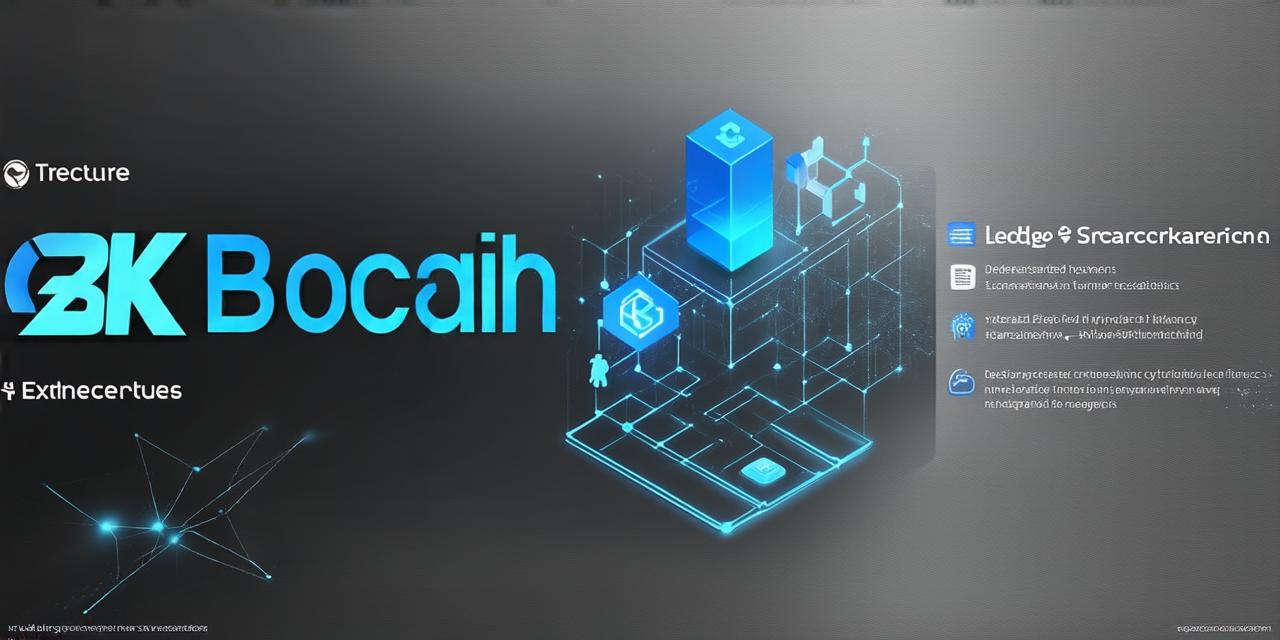Blockchain technology is revolutionizing the way we store and exchange data across industries. From finance to healthcare, blockchain offers a secure and transparent way to manage complex transactions with ease. In this article, we’ll explore how blockchain works and its potential benefits for businesses and individuals alike.
What is Blockchain?
At its core, blockchain is a decentralized digital ledger that records transactions in a secure and transparent manner. Unlike traditional databases, which are managed by a central authority, blockchain uses a network of computers to validate and verify transactions. Each block in the chain contains a record of multiple transactions, and once a block is added to the chain, it cannot be altered or deleted.
The technology behind blockchain is based on cryptography, which ensures that each transaction is secure and that the data stored on the network is immutable. This means that once data is recorded on the blockchain, it cannot be tampered with or manipulated in any way.
How does Blockchain Work?
The process of creating a new block in the blockchain involves several steps:
- Transactions: First, multiple transactions need to occur between parties in order to create a new block. These transactions can be anything from buying and selling goods to transferring assets like cryptocurrency.
- Mining: Next, a miner on the network must validate the transactions and add them to the blockchain. The miner does this by solving a complex mathematical problem, which involves verifying that each transaction is valid and that the data in the new block is correct.
- Validation: Once the miner has solved the problem, they broadcast the new block to the network, which checks it for errors and ensures that all transactions are valid. If the block is accepted, it is added to the chain of blocks.
- Rewards: As a reward for their work, the miner is given a certain amount of cryptocurrency, which is added to their own digital wallet. This incentivizes miners to continue validating transactions and adding new blocks to the chain.
Benefits of Blockchain Technology
There are many potential benefits of blockchain technology, including:
- Transparency: One of the main advantages of blockchain is its transparency. All transactions on the network are publicly visible, which makes it easy to track and verify the integrity of the data. This can help reduce fraud and increase trust between parties.
- Security: The use of cryptography ensures that data stored on the blockchain is secure and tamper-proof. This makes it ideal for storing sensitive information like financial data or personal identification numbers.
- Decentralization: Because blockchain is decentralized, there is no central point of failure. This means that if one part of the network goes down, the others can continue to function without interruption.
- Efficiency: Traditional databases can be slow and inefficient when it comes to managing complex transactions. With blockchain, transactions can be processed quickly and securely, without the need for intermediaries like banks or payment processors.
- Cost Savings: By eliminating intermediaries, blockchain technology can help businesses save on transaction fees and other associated costs. This can be especially beneficial for companies that handle a large volume of transactions, such as those in the finance industry.

Real-life Examples of Blockchain Technology
Blockchain technology is already being used in many real-life scenarios across industries. Here are a few examples:
- Cryptocurrency: Perhaps the most well-known example of blockchain technology is cryptocurrency like Bitcoin and Ethereum. These digital currencies use blockchain to facilitate secure and decentralized transactions, without the need for intermediaries like banks.
- Supply Chain Management: Blockchain technology is also being used in supply chain management to improve transparency and efficiency. By using a blockchain-based system, companies can track the movement of goods from their point of origin to their final destination, reducing fraud and increasing accountability.
- Healthcare: In healthcare, blockchain technology is being used to securely store and share patient data, while also ensuring that it is only accessed by authorized personnel. This can help improve patient outcomes and reduce the risk of medical errors.
- Voting Systems: Blockchain technology is also being explored as a potential solution for voting systems.
